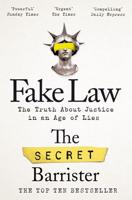Publisher's Synopsis
This book provides an innovative and policy-oriented analysis of gender stereotypes in advertising regulation from a socio-legal perspective.
Examining the law and policy of the European Union and three case studies in Sweden, Spain and the UK, the book draws on interviews, focus group data and desk research to critically assess the legislation and regulation on the use of gender stereotypes in advertising. Its focus is on the largely neglected question of the EU's competence in the area of gender. And to assess this, the book considers various forms of 'good practice' through legislation, regulation and policy. It also explores the proscribing of gender stereotypes in advertising through 'soft law' measures such as self-regulation at state level, and action programmes and roadmaps at EU level. Finally, it critiques the lack of progress in achieving a unified code on the regulation of gender stereotypes whilst imagining what such a code might look like.
The book will appeal to academics with research and teaching interests in EU law, gender equality and comparative law, as well as academics and practitioners involved with media and advertising regulation, anti-discrimination law and freedom of expression.










